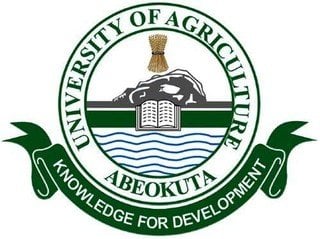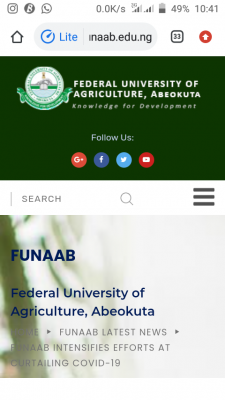
In a recent development at the Federal University of Agriculture, Abeokuta (FUNAAB), the University Management has taken steps to shed light on, and reinforce, the established dress code for its students.
A Refresh on the Decisions
In a document made public on July 17, 2023, Dr. ‘Bola Adekola, the respected Registrar of FUNAAB, reminded the student body and the larger community of the University Senate’s decision from their December 14, 2021 meeting. This decision, initially disseminated through circular FUNAAB/REG.11/VOL. III/52 dated December 16, 2021, clearly states the University’s stance on the dress code and should be considered the final word on the matter.
Safety and Identification Remain Paramount
The University places a significant emphasis on the easy facial recognition of all students when they are within the campus. This guideline ensures safety, accountability, and a sense of community. Moreover, special provisions have been made for those undergoing their Farm Practical Year. These students are advised to adorn themselves in the officially sanctioned green jumpsuit complemented by rain boots and hand gloves. This attire is not just a symbol of their role but is also crucial for their safety and convenience during their hands-on learning on the farms.
Addressing Recent Misunderstandings
Of late, some online chatter has emerged, reportedly from unidentified individuals who, some suspect, might be trying to intertwine religious narratives into the University’s policies, thereby potentially upsetting FUNAAB’s renowned peaceful academic environment. In response to these speculations, the University Management pointed to a ruling made by the Federal High Court, Abeokuta on May 19, 2022. Presided over by Hon. Justice O. O. Oguntoyinbo, the court addressed the topic of the face veil, commonly referred to as the ‘Niqob’. The judgment went in favour of FUNAAB, highlighting that while fundamental human rights are essential, they aren’t absolute in such contexts.
Similar Posts:
The University Management, while upholding the court’s decision, also encourages anyone with reservations or seeking clarity on the matter to engage the legal system for a more comprehensive understanding.
Drawing the Line Between Service and Personal Beliefs
Lastly, FUNAAB underscored an essential point: in any global context, benefitting from a public service requires visibility and transparency. Being anonymous without explicit approval from the concerned service provider is not a standard practice. The institution firmly believes that the ongoing debate has no religious undertones but is solely about ensuring the best environment for academic pursuit.
As FUNAAB continues to stand by its values and principles, this clarion call serves as a reminder that the focus remains on providing a conducive and harmonious environment for all students, staff, and stakeholders.



